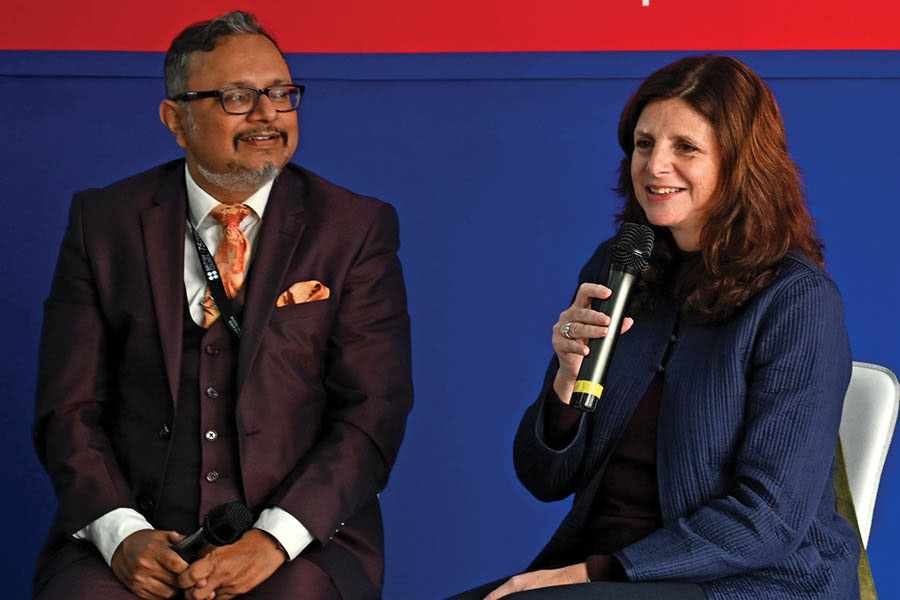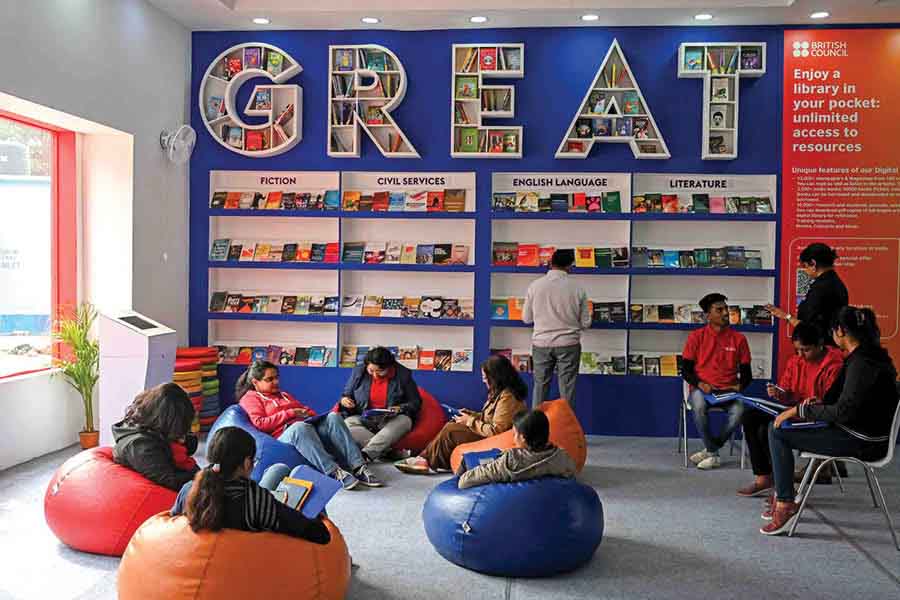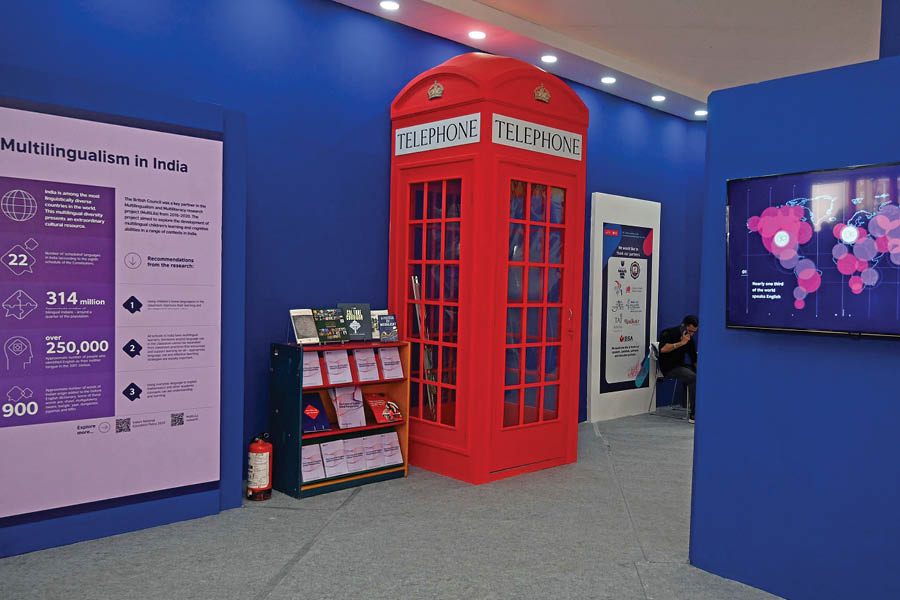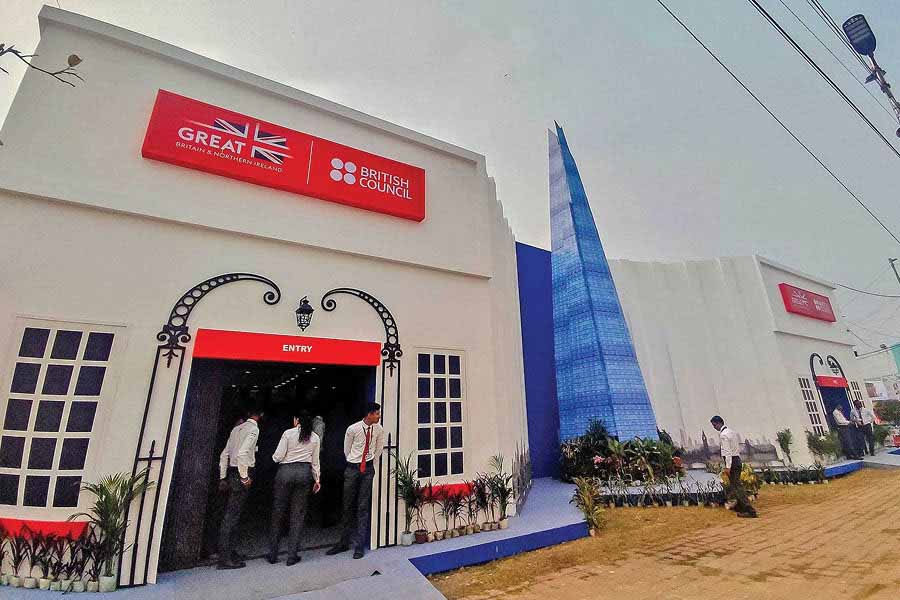For the next 10 days, all eyes at the 47th International Kolkata Book Fair 2024 will be directed towards a sparkling white facade in Central Park Mela Ground. The British Council’s 75th year in India has coincided with the United Kingdom being declared as the focal theme country of the Boi Mela for the fourth time. My Kolkata was at the coveted UK Pavilion for its inauguration ceremony.
The pavilion was inaugurated by chief minister Mamata Banerjee, along with British high commissioner Alex Ellis and British Council India director Alison Barrett. It is a testament to the longstanding friendship between India and UK, and demonstrates British Council’s breakthroughs in education, arts and the English language. “This year, the entire diversity of the UK will be showcased, from England to Wales, Scotland to Northern Ireland,” said Debanjan Chakrabarti, director of British Council’s operations in East and Northeast India.

The UK Pavilion was unveiled by British Council’s East and Northeast India operations director Debanjan Chakrabarti, and (right) India director Alison Barrett.
The Pavilion has been divided into various segments. Guests will enjoy the experience of perusing through British Council’s coveted library, comprising a variety of titles across genres. They will also have the option of signing up for their digital library, which has a presence in over 100 Indian locations. “While the British Council has four physical offices in India, the pandemic taught us that we can be everywhere. We have programmes running in places around the country, from Nagaland to Gujarat, and have grand plans to expand,” smiled Barrett.
A number of exciting author interactions and book signings have been lined up till January 28. The UK Pavilion will host many accomplished authors like Anupama Raju, Daniel Hahn, Sebastian Faulks, Karuna Ezara Parikh and Meghnad Desai, with the session topics veering from technology to architecture, economics to education. There will also be a variety of fun activities like word games and quizzes for children, in order to inculcate a love for books. For older students, British Council will also provide valuable insights and guidance on how to pursue higher studies in some of the best universities in the UK. “We wanted to create a welcoming, friendly and warm environment for visitors of all backgrounds and age groups to show them what the UK is like. Be it listening to authors and experts, indulging in quizzes, or simply creating memories through photos against the iconic UK telephone booths or the Shard, there is something for everyone,” she added.

“We arranged bean bags for young kids to comfortably lounge and read something of their choice,” said Barrett, explaining the thought behind the reading corner.
January 19, the first day of the event, kick-started with a session by Michael Wilson, professor at Loughborough University, followed by a talk by author Nandini Das. The third session of the day was it Roma Agrawal, a structural engineer behind the Shard, while Dr. Robert Potts brought down the curtains on Day 1 with a session on AI and robotics.
In the heart of the pavilion lies an exhibition titled ‘Future of English’. The exhibition is the product of a research project, created by the British Council in collaboration with English researchers and local stakeholders in each of its regions. This three-year programme found that AI will make learning more efficient, and open up more employment opportunities in teaching at the specialist level. “Our main objective is to support the advancement of the English language, which we believe is critical for progressing in your career, finding the right varsity, and global mobility. Through technology and artificial intelligence, we found that English will continue to be the language that unlocks opportunities in a multilingual context. India has incredible levels of English, and will be at the apex of this revolution. Moreover, English will contribute to its multilingual culture,” said Barrett. The exhibition also comprises some of the exhaustive interviews with local stakeholders from the last three years.

The Future of English exhibition is appropriately adorned with the iconic Red telephone box. “We wanted to have a bit of Britain in our Pavilion,” smiled Barrett.
At the core of the UK Pavilion is British Council’s commitment towards cultural exchange, and strengthening its relationship with India. Barrett shared that going forward, they want to bring some of India’s unheard voices to the UK, and introduce India to some of the best emerging artists from the UK. The organisation is trying to build a space for them to collaborate. “Together, we believe that we can create a greater impact on the world. This is a great opportunity to refresh, reimagine and modernise our relationship,” signed off Barrett.
